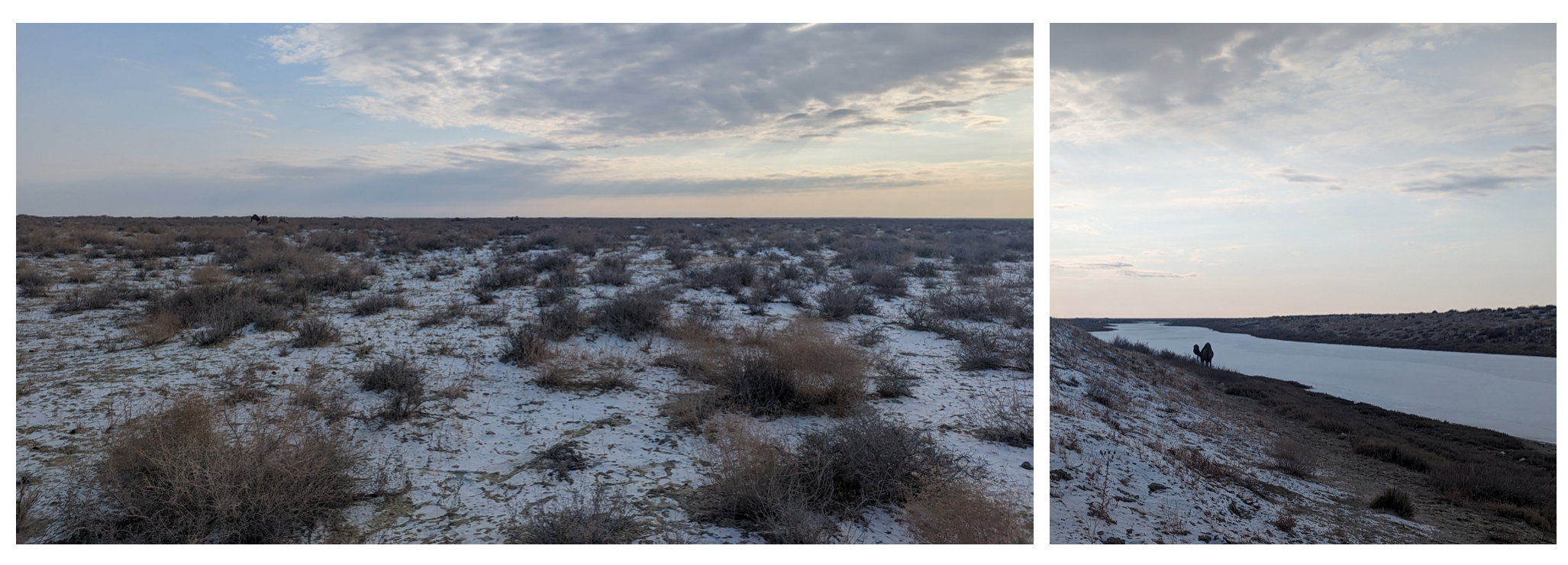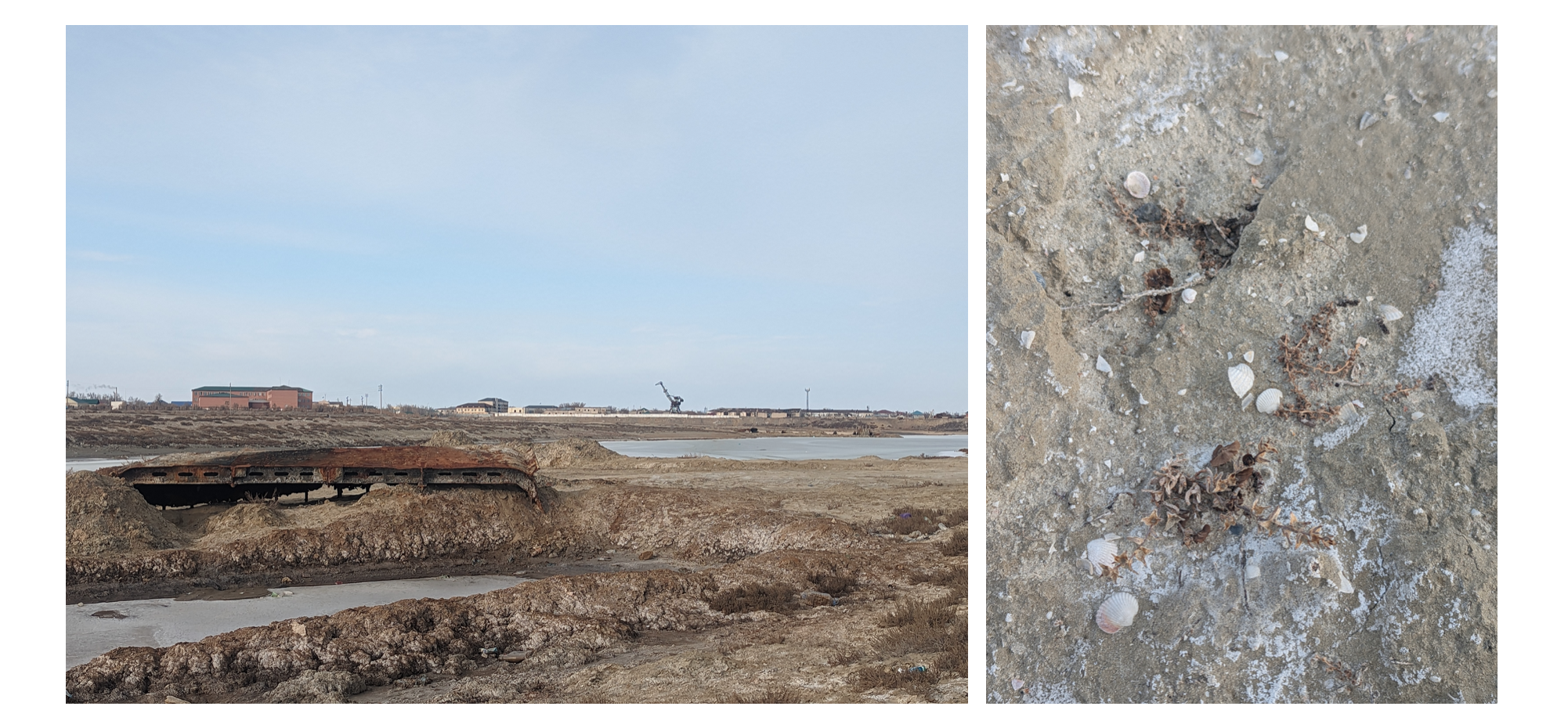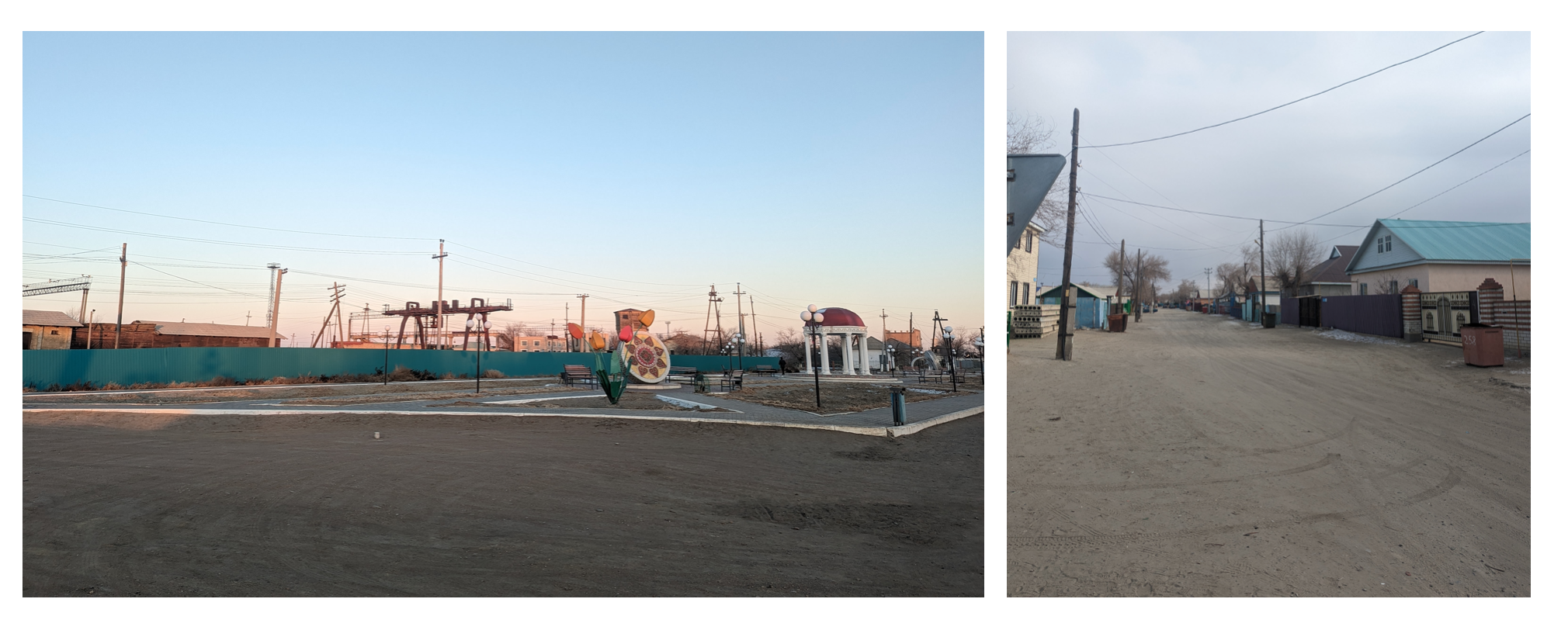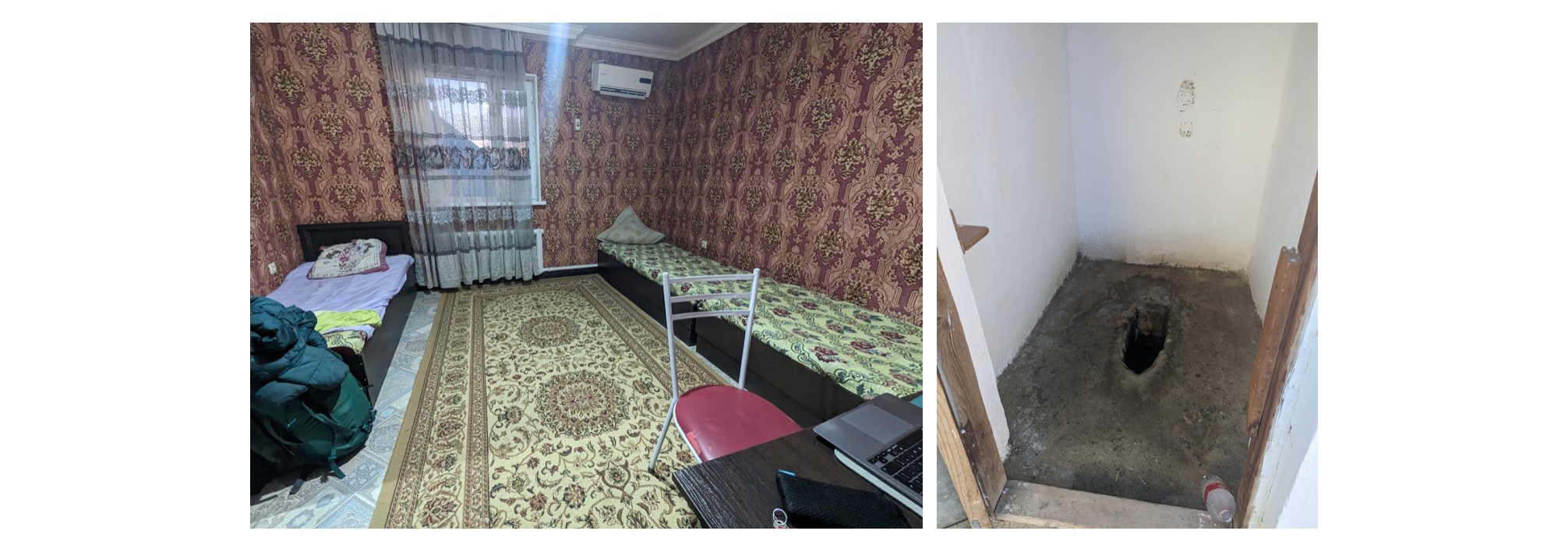As I journey from the very West to the very East of the enormous country that is Kazakhstan, I made my first stop in an old harbour town on the Aral Sea. This name might be familiar to you from a geography lesson back in your youth. It’s the lake in the middle of Kazakhstan and Uzbekistan which almost completely dried up in one of the world’s worst man made environmental disasters.
What happened to the Aral Sea?
The Aral Sea was the fourth largest lake in the world. Under Stalin’s five-year plans, the two major rivers which fed the Aral Sea were diverted for irrigation for cotton farming. The Soviet plan was to make Central Asia the biggest producer of cotton in the world, which Uzbekistan became in 1988. Experts foresaw that doing this would cause the Aral Sea to disappear, but none wanted to speak against the plans. As expected, in the 1960s the two rivers dried up before reaching the Aral Sea, meaning the water it lost to evaporation as part of the natural water-cycle was not replenished. It was reduced to 10% of its original size.
The consequences of this:
- As the water evaporated, the salt and mineral content of the sea increased and as did the concentration of pesticides and herbicides. It became toxic and the fish all died. The fishing industry was destroyed and unemployment increased drastically.
- The reduction of the lake made the local climate harsher, resulting in hotter summers and colder winters.
- The people who remained in the area started to have severe health issues as the salt and toxic chemicals from pesticide and fertiliser run off, and from weapons testing, left on the seabed were blown into the air by wind. The rate of children born with abnormalities is 5 times higher than in European countries. When I visited I had an awful headache and sinus pain after walking around all day. Obviously I don’t know if it was caused by the air pollution here, but it’s a coincidence at least.
There is some restoration work happening which is having some success. For example the Dike Kokaral Dam on the Kazakhstan side.
My experience
I walked a short distance from the town to explore the sea bed. It was immense in its desolation. It looked like a wasteland. The only hints that something else once filled the area were the salty smell of the air and, if you looked closely, the shells covering the ground. I reached the mouth of the old harbour, and the wreckage of a barge. Only the very bottom was left and it was filled with frozen water and rubbish. Behind it I could see the old cranes that used to work in the fishing port, still standing on the edge of the past water line. In the other direction there was nothing. A deeper channel, I assume where boats would enter the harbour broke up the otherwise homogenous landscape. It was frozen so there must’ve been some water left there. I walked along the channel, my face covered with my snood to fight against the smell as much as the cold. I spotted a herd of camels roaming around. I was so excited to visit here, but the excitement had died down. It was just sad. To think about this huge area once being a sea, filled with fish and life. To think about the human actions that directly, and knowingly, led to its demise. To think about this happening elsewhere in the world due to climate change. Looking back at the town, it was sad to think about its fate. It was once a prosperous fishing town. Now it had nothing. Most people had left when the fishing industry collapsed. The ones that are still here face all of the awful health issues I mentioned above. I’m really glad I came to visit. It’s something that will stick with me forever. The power that humans have over our natural environment and the lives of others.


Beyond the dried up sea Aralsk didn’t have much to offer. There was a museum, but it was closed. The town wasn’t quite as awful as I’d prepared myself for. The houses were all one storey and shabby but they were colourful. Most of the roads were dirt but it was very clean, no litter. In the train station there was a soviet mosaic which excited my soviet-history side. It depicted the fisherman of Aralsk coming to the rescue on Lenin’s orders and sending fish north to save the famished Soviet Union. What a lovely thing the soviets did to repay them, drying up the lake like they did.

I didn’t have many interactions with locals during my short stay here. I really wish I spoke russian so I could’ve attempted to ask them about their thoughts on it all. The only interactions I did have were locals stopping in their cars as I walked along the dried up harbour to (I assume from the gestures) ask what on earth I was doing, and to offer me a lift if I needed it. I replied with gestures that I hoped communicated ‘just looking around’ and ‘taking photos’ and they seemed quite bemused.

Logistics
It was very easy to get to Aralsk, the old harbour town and the main place to visit the Aral Sea in Kazakhstan. I caught a high-speed, 18 hour night train from Aktau. Before arriving here I’d emailed a man called Serik about it, as I found his email online as a helpful contact in the area. He told me that there was a hotel near the train station that I didn’t need to book in advance and offered me a tour of the Aral Sea. The tour was way too expensive for me (around £150 for the day) so I turned him down, planning to explore alone instead. When I got off the train I spotted the hotel he mentioned, but it was closed. Luckily there was one right opposite so I went over and asked about a room. The lady behind reception didn’t speak english but with google translate she quoted me the price for one day. I nodded in agreement, saying yep just one night. She looked confused and asked when I’d be leaving. I replied with tomorrow’s date and she went ‘ah’ overnight, and quoted me a different price. It was still cheap so I agreed, wondering why on earth I’d only want the room during the day. Then it dawned on me - brothel. I had seen in some hotel reviews here that people had experienced the same. Never mind, the room was fine, very spacious but not very clean. I was happy I had my sleeping bag to use! In the evening my suspicions deepened as there was a lot of activity in the hallway, lots of footsteps coming up the stairs and knocks on doors. On one occasion someone tried to enter my room but I just ignored it. I can’t say I felt very happy there but I slept fine and it was only for one night. The restaurants weren’t plentiful but the one I ate in was fine, food was cheap and fairly tasty. The toilet was horrendous however. Definitely not the nicest place to visit, but I didn’t think it would be!
